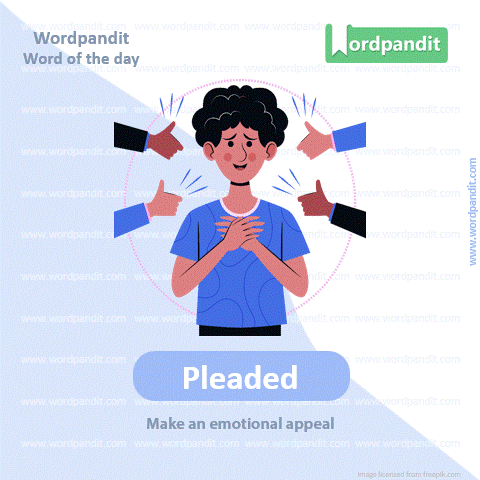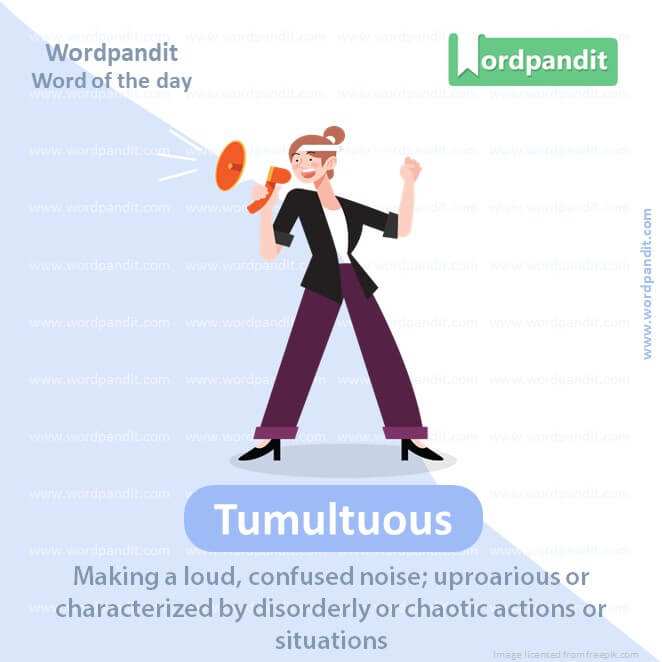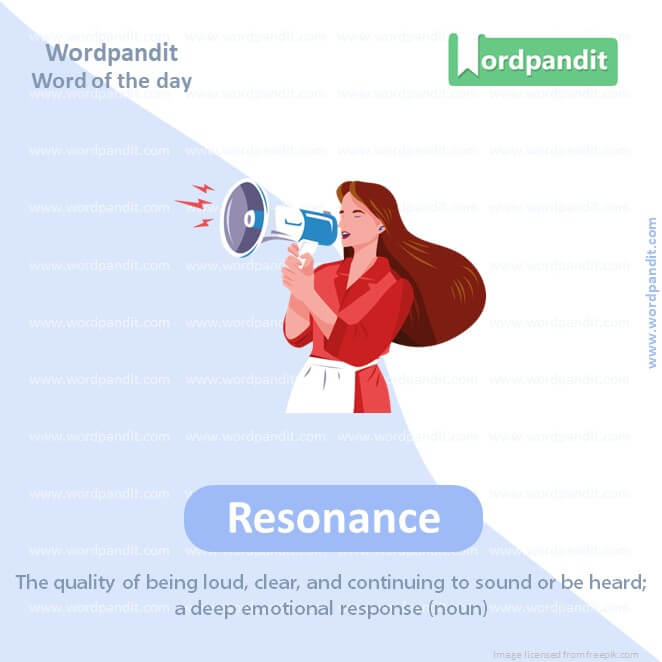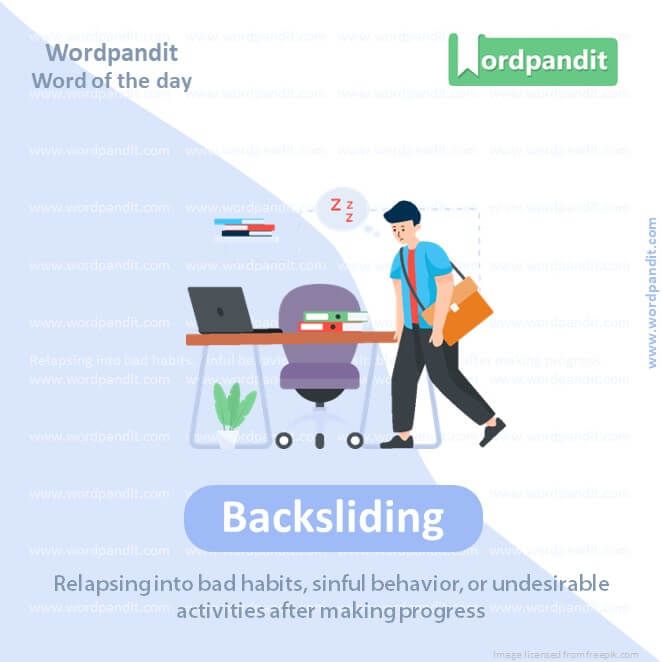Daily Vocabulary Words: List of Daily Used Words in Leading Indian Newspapers
Hi there. Welcome to this special section @ Wordpandit. Our endeavour here is straightforward: highlighting daily vocabulary words that you would come across in leading newspapers in the country. We have included the following newspapers in our selection:
• The Times of India
• The Economic Times
• Hindustan Times
• Mint
• Indian Express
We are putting in extensive work to develop your vocabulary. All you have to do is be regular with this section and check out this post daily. This is your repository of commonly used words; essentially, we are posting a list of daily used words. Hence, this has significant practical application as it teaches you words that are commonly used in leading publications mentioned above.
Visit the website daily to learn words from leading Indian newspapers.

WORD-1: Pleaded
CONTEXT: Vibhishan, Ravan’s younger brother, seeing the reality at this subtle level has pleaded with Ravan to bow at the feet of Ram and return Sita.
SOURCE: Indian Express
EXPLANATORY PARAGRAPH: When you really, really want something from your parents, like a new toy, and you ask them very nicely, that’s pleading. It’s when you ask for something with a lot of emotion and hope.
MEANING: Make an emotional appeal.
PRONUNCIATION: PLEED-id
SYNONYMS: begged, implored, beseeched, entreated, implored
USAGE EXAMPLE:
1. She pleaded with her parents to let her go to the party.
2. He pleaded guilty in court to avoid a harsher sentence.
3. The dog pleaded for a treat with its sad eyes.
4. The suspect pleaded innocence during the interrogation.
WORD-2: Equanimity
CONTEXT: Bravery and patience are the wheels of this chariot. Strength, wisdom, self-control and altruism are its four horses which are held by the reins of forgiveness, empathy and equanimity
SOURCE: Indian Express
EXPLANATORY PARAGRAPH: Imagine if someone spilled your favorite drink, and instead of getting angry, you stayed calm and understanding. That’s equanimity—it’s about staying calm and balanced even when things go wrong.
MEANING: Mental calmness and composure, especially in difficult situations (noun).
PRONUNCIATION: ee-kwuh-NIM-uh-tee
SYNONYMS: composure, serenity, tranquility, poise, coolness
USAGE EXAMPLE:
1. She faced the crisis with remarkable equanimity.
2. Maintaining equanimity during stressful times is important.
3. His equanimity in handling criticism impressed everyone.
4. Yoga and meditation can help achieve a state of equanimity.

WORD-3: Yearning
CONTEXT: Our yearning to seek the divine both formless and with form.
SOURCE: Indian Express
EXPLANATORY PARAGRAPH: Imagine if you really miss someone you love who’s far away, and you wish they were with you. That feeling is yearning—it’s a strong desire or longing for something.
MEANING: A yearning for something is a very strong desire for it.
PRONUNCIATION: YUR-ning
SYNONYMS: longing, craving, longing, desire, yearning
USAGE EXAMPLE:
1. She felt a deep yearning for her homeland after years abroad.
2. The painting evoked a sense of yearning for a peaceful life.
3. His yearning for adventure led him to travel to distant lands.
4. The song’s lyrics express a yearning for lost love.

WORD-4: Tumultuous
CONTEXT: It is the kevat who needs Ram to safely carry him across this tumultuous ocean of emotions, “bhav sagar”, that is the human condition.
SOURCE: Indian Express
EXPLANATORY PARAGRAPH: Imagine if a storm comes with loud thunder and strong winds, making everything chaotic and noisy. That’s tumultuous—it’s when there’s a lot of noise and confusion.
MEANING: Making a loud, confused noise; uproarious or characterized by disorderly or chaotic actions or situations.
PRONUNCIATION: too-MUHL-choo-us
SYNONYMS: chaotic, disorderly, turbulent, stormy, tempestuous
USAGE EXAMPLE:
1. The tumultuous applause filled the auditorium after the performance.
2. Their tumultuous relationship was marked by frequent arguments.
3. The country went through a tumultuous period of political unrest.
4. The storm brought tumultuous winds and heavy rain.
WORD-5: Striving
CONTEXT: Yet in that moment, by the river bank, it is the Lord of the Universe who needs the kevat. In the days ahead, our striving for love is the kevat and courage is the boat.
SOURCE: Indian Express
EXPLANATORY PARAGRAPH: Imagine if you’re trying really hard to get good grades in school by studying a lot. That’s striving—it’s putting in a lot of effort and working hard towards a goal.
MEANING: Making great efforts to achieve something (verb).
PRONUNCIATION: STRY-ving
SYNONYMS: endeavoring, working hard, exerting, struggling, laboring
USAGE EXAMPLE:
1. She was always striving to improve herself in every aspect.
2. Striving for excellence is a key principle in this company.
3. The athlete’s constant striving for perfection paid off in championships.
4. Striving for success requires dedication and perseverance.

WORD-6: Resonance
CONTEXT: Some of the Left’s positions — especially its trenchant critique of the US — have resonance not only among the traditionalists in the foreign policy community, but also the nativist right, including in the ruling party.
SOURCE: Indian Express
EXPLANATORY PARAGRAPH: Imagine hitting a drum and hearing a nice, deep sound that continues for a while. That’s resonance—it’s when something produces a strong, deep, and lasting effect or influence.
MEANING: The quality of being loud, clear, and continuing to sound or be heard; a deep emotional response (noun)
PRONUNCIATION: REZ-uh-nuhns
SYNONYMS: reverberation, echo, impact, influence, significance
USAGE EXAMPLE:
1. The speaker’s words had a deep resonance with the audience.
2. The painting had a resonance that touched people’s emotions.
3. The book’s themes of love and loss struck a chord of resonance.
4. His actions had a resonance that lasted long after he was gone.
WORD-7: Trenchant
CONTEXT: Some of the Left’s positions — especially its trenchant critique of the US — have resonance not only among the traditionalists in the foreign policy community, but also the nativist right, including in the ruling party.
SOURCE: Indian Express
EXPLANATORY PARAGRAPH: Imagine a knife that’s very sharp and cuts things easily. That’s trenchant—it’s when something is sharply effective, like words that are clear and to the point.
MEANING: Incisive or keen, especially in expression or style (adjective).
PRONUNCIATION: TREN-chunt
SYNONYMS: sharp, cutting, incisive, penetrating, forceful
USAGE EXAMPLE:
1. His trenchant criticism of the government sparked a debate.
2. The author’s trenchant wit added depth to her writing.
3. The lawyer’s trenchant arguments convinced the jury.
4. She responded with trenchant remarks that silenced the room.
WORD-8: Chattering
CONTEXT: The Left carries considerable intellectual influence in the chattering classes.
SOURCE: Indian Express
EXPLANATORY PARAGRAPH: Imagine if a group of birds outside your window is making a lot of noise by chatting with each other. That’s chattering—it’s when there’s a lot of rapid and noisy talk or sounds.
MEANING: Making rapid and continuous noises, often talking or laughing (adjective).
PRONUNCIATION: CHA-tuh-ring
SYNONYMS: babbling, jabbering, chitchatting, gossiping, prattling
USAGE EXAMPLE:
1. The chattering of students in the cafeteria echoed through the halls.
2. The sound of chattering monkeys filled the forest.
3. Her chattering on the phone distracted everyone in the room.
4. The chattering of the audience subsided as the play began.
WORD-9: Deepening
CONTEXT: The CPM, which pulled out of the UPA coalition in 2008 on the question of India’s deepening ties with the US, has much to say on the subject a decade-and-a-half later.
SOURCE: Indian Express
EXPLANATORY PARAGRAPH: Imagine if a hole in the ground gets bigger and deeper because of rainwater. That’s deepening—it’s when something becomes more intense, serious, or profound.
MEANING: Becoming more intense, serious, or profound (verb).
PRONUNCIATION: DEEP-en-ing
SYNONYMS: intensifying, strengthening, enhancing, amplifying, augmenting
USAGE EXAMPLE:
1. The deepening economic crisis affected businesses nationwide.
2. Their friendship was marked by a deepening bond over the years.
3. The deepening mistrust between the two parties led to conflict.
4. The deepening shades of blue in the sky signaled the approach of evening.

WORD-10: Backsliding
CONTEXT: It would be surprising if this does not resonate well with sections of the Western foreign policy establishments that have been critical of India’s democratic backsliding.
SOURCE: Indian Express
EXPLANATORY PARAGRAPH: Imagine if you promised to eat healthy food but then started eating a lot of junk food again. That’s backsliding—it’s when you go back to old, bad habits after trying to change.
MEANING: Relapsing into bad habits, sinful behavior, or undesirable
activities after making progress.
PRONUNCIATION: BAK-SLY-ding
SYNONYMS: relapse, regress, revert, deteriorate, decline
USAGE EXAMPLE:
1. After quitting smoking for a year, he started backsliding and smoking again.
2. The company’s backsliding on environmental commitments drew criticism.
3. Backsliding into old habits can be a challenge during times of stress.
4. She warned him about the dangers of backsliding into procrastination.
Vocabulary Daily
Language learning is a beautiful yet complex dance, where ‘vocabulary daily’ connote the integral beats. These everyday words form the essence of most of our conversations and are the cornerstone of effective communication. However, a methodical approach is required to efficiently learn ‘vocabulary daily’.
One key approach to learning ‘vocabulary daily’ is consistency. Engaging with a few words every day consistently fosters better understanding and recall than sporadic cramming sessions.
Interactive tools can add a touch of excitement and ease to mastering ‘vocabulary daily’. Flashcards, word of the day calendars, language learning apps can make the learning experience fun and fruitful. These tools not only introduce new words but often provide a context of use, aiding your understanding.
Making ‘vocabulary daily’ a part of your daily life is a surefire success strategy. Incorporating these words into day-to-day conversations, writing, or social media interactions greatly enhances retention and usage. It also allows you to witness firsthand the impact of a rich vocabulary on the clarity of expression.
To effectively grasp ‘vocabulary daily’, always keep a learner’s curiosity. Explore books, news articles, music, and podcasts in the respective language. This exposure helps in absorbing the words in a real-world context, thus building a robust bond with ‘vocabulary daily’.
In conclusion, understanding ‘vocabulary daily’ is an ongoing process that necessitates consistency, interactive learning, practical application, and a learner’s curiosity. By following this comprehensive approach, the task of mastering ‘vocabulary daily’ becomes less of a chore and more of an enriching journey that can lead to eloquent and effective communication. So, step into the exciting world of ‘vocabulary daily’ and let it colour your language learning adventure with shades of clarity, confidence, and joy.







